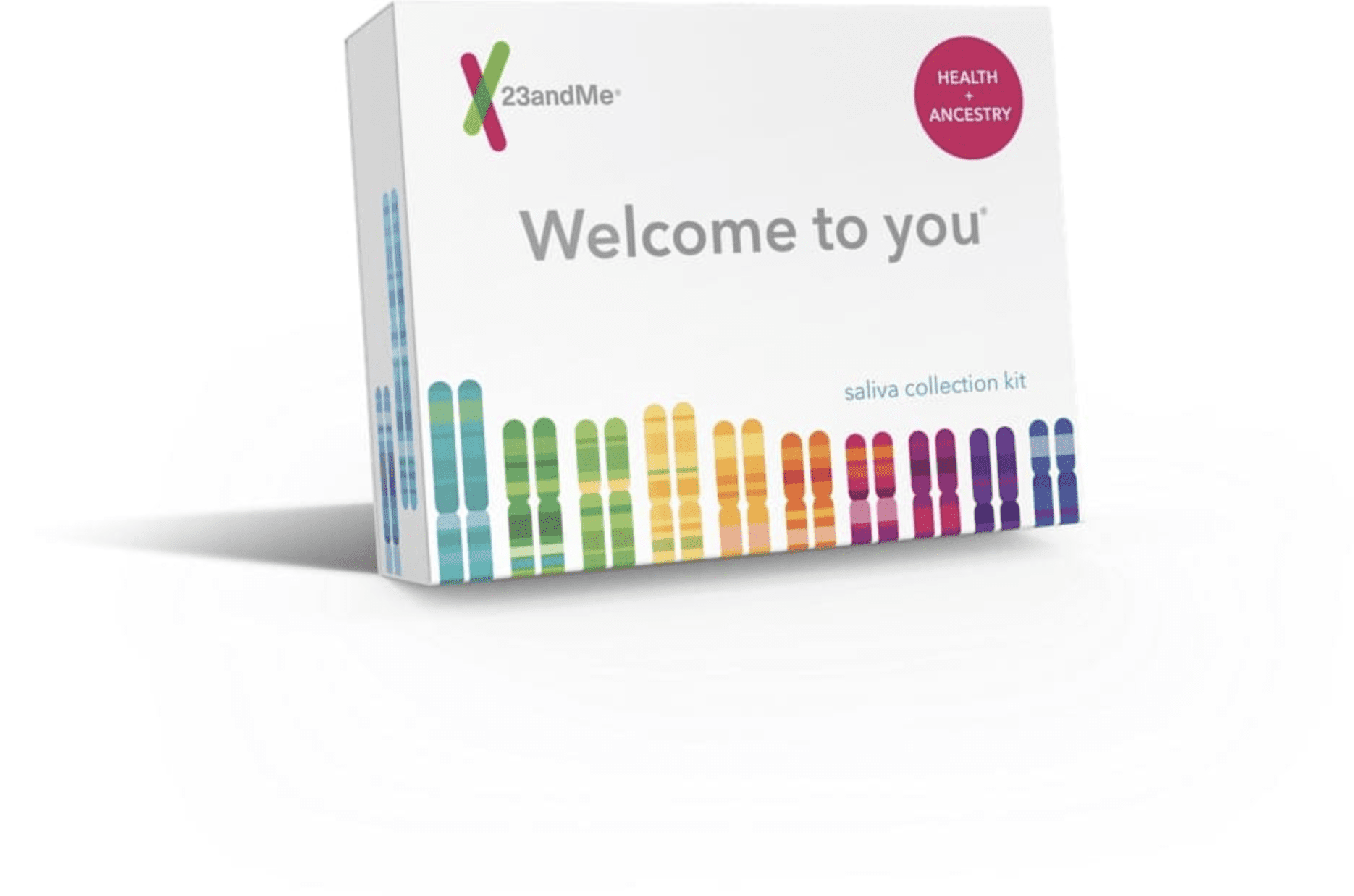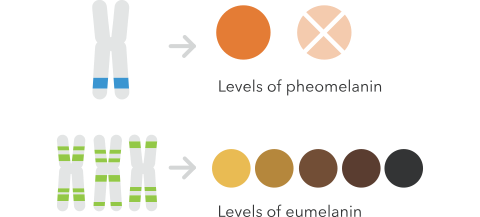How it works
Hair color comes from melanin, a pigment in your skin, hair, and eyes. If you produce a lot of the melanin type eumelanin, you probably have black or brown hair. If you don’t produce much eumelanin, your hair is probably blond. And, if you have low levels of eumelanin plus high levels of a red/yellow pigment called pheomelanin, you may have red hair.
The genetic link
A gene called MC1R plays a role in whether someone will have red hair. People who have certain variants in this gene are more likely to have red hair because they have higher levels of pheomelanin.

Did you know?
These red hair variants in MC1R likely first appeared in ancient humans around 30,000-80,000 years ago, at about the same time as early migrations out of Africa. Scientists used to think red hair evolved to help people produce Vitamin D in chilly places with little sunlight (think Ireland). But more recently, data suggests that genetic variants associated with red hair became common in northern latitudes by chance. That became possible after humans migrated out of Africa to less sunny climates, because it was no longer necessary to maintain the darker pigmentation that acted as a shield against harmful UV rays.
Explore more
23andMe’s Health + Ancestry Service can tell you more about the genetic roots of your hair color. Get the kit, spit, and see what your genes have to say about red hair.

Health + Ancestry Service
References
23andMe Blog (2017, June 15). “No, I’m Not Irish.” Retrieved October 22, 2018, from https://blog.23andme.com/health-traits/no-im-not-irish/.
U.S. National Library of Medicine. (2018). “MC1R gene” Genetics Home Reference.

Leave a Reply